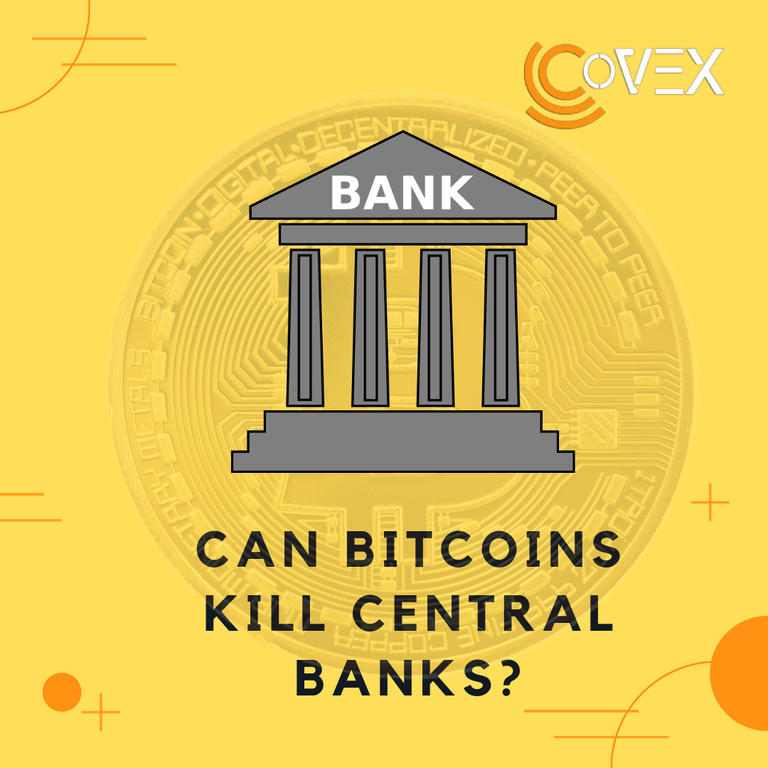Bitcoin is a virtual currency that uses peer-to-peer technology to operate with no central authority or institutions like Banks. By its very own definition, Bitcoin sounds well positioned to kill central banks. Could it? This topic of central banks and their potential replacements are complex with a lot of valid arguments supporting it and against it.
The digital era may be against central banks, but it all not that easy as it has a strong foundation and six centuries of history. The first central banks, often helped nations in funding wars and other initiatives that are supported by the government. The British redefined the concept of central banking in 1844 with a legislative effort that laid the foundation for an institution that had the power to issue currency.
With the idea of a bank with that level of power could help stabilize the financial system in times of crisis and war. It is a concept that many experts agree helped stave off disaster during the 2007–2008 financial crisis and the Great Recession. Presently, modern central banks play a variety of roles like maintaining full employment and stables prices, ensuring the safety and soundness of the nation’s banking and financial system, stabilizing the financial system in times of crisis and helping oversee the nation’s payment systems.
Currently, central banks are the predominant structure nations use to manage their economies. They have a long history and monopoly power. Hence they are not going to give up that power without an intense fight. While Bitcoin and other digital currencies have created great interest, their adoption rates are very minimal and obviously, the government support for them is almost nonexistent.
Unless governments recognize and label Bitcoin as a real-time currency, Bitcoin has little less hope of killing off central banks any time soon. Having said that, central banks across the globe are very keenly watching and understanding what Bitcoin is doing. As we all know that metal coins are expensive to manufacture and most of the time their face value is kind of cheaper than their manufacturing cost, we shouldn’t be surprised if central banks one day issues digital currencies under their name.
That is the exact reason why they should adopt it sooner rather than later. The earlier banks adapt and adopt some or the other form of Blockchain the more relevant they will remain. Bitcoin has established a lot of partnerships with FinTech firms I order to develop the applications of Blockchains in their capital markets. That could explain why big banks have been eagerly warming up to Bitcoin and other major cryptocurrencies which use Blockchain.
Get started with bitcoins and more at:
 https://covex.io/
https://covex.io/
Source
Plagiarism is the copying & pasting of others work without giving credit to the original author or artist. Plagiarized posts are considered spam.
Spam is discouraged by the community, and may result in action from the cheetah bot.
More information and tips on sharing content.
If you believe this comment is in error, please contact us in #disputes on Discord